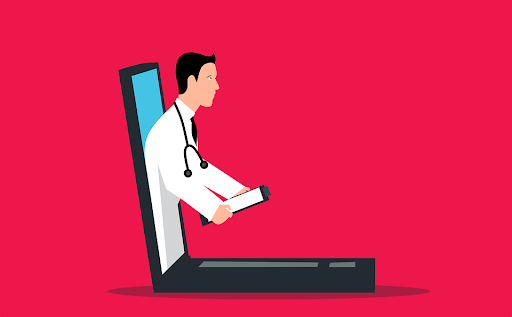The healthcare industry is undergoing a transformation from a fee-for-service model to a value-based model. This has led to an increased focus on population health management, which involves identifying and addressing the health needs of entire populations rather than just individual patients. The use of population health analytics is at the forefront of this shift towards a more proactive and preventative approach to patient care.
At Holon, we believe that healthcare should feel human. This means that patients should be at the center of every decision, and that their needs and preferences should be taken into account when designing healthcare programs. Population health analytics is an important tool in achieving this goal, as it allows healthcare organizations to gain insights into patient populations and tailor care plans to meet their unique needs.
What is Population Health Analytics?
Population health analytics is the process of collecting and analyzing data from large groups of patients to identify patterns, trends, and opportunities for improvement. By examining data from electronic health records, claims data, and other sources, healthcare organizations can gain a better understanding of the health status and behaviors of their patient populations.
This information is then used to develop targeted interventions and care plans that take into account the specific needs of different patient groups. For example, if a healthcare organization discovers through population health analytics that a particular patient population is at higher risk of diabetes, they can design diabetes prevention programs tailored to that group’s needs.
Why is Population Health Analytics Important?
Population health analytics is important for several reasons. First, it allows healthcare organizations to identify patients who are at high risk for chronic conditions and other health issues before they become symptomatic. This enables healthcare providers to intervene in a timely manner, which can help prevent the progression of disease and improve overall health outcomes.
Second, population health analytics can help healthcare organizations identify gaps in care and areas where care can be improved. By analyzing data on patient outcomes, healthcare providers can identify areas where they may be falling short and develop strategies to improve care.
Third, population health analytics can help healthcare organizations optimize their resources. By identifying patients who are at higher risk of hospitalization or readmission, healthcare providers can allocate resources more efficiently and reduce unnecessary spending.
How Holon is Using Population Health Analytics to Improve Patient Care
At Holon, we have integrated population health analytics into our care management platform to provide our clients with insights into their patient populations. Our platform includes a suite of tools and resources that enable healthcare providers to identify high-risk patients, develop targeted interventions, and monitor patient outcomes over time.
One of the ways we use population health analytics is to identify patients who are at risk of hospitalization or readmission. By analyzing data on patient demographics, diagnoses, and other factors, we can identify patients who are at higher risk of these outcomes and work with healthcare providers to develop care plans that address these risks.
Another way we use population health analytics is to identify trends and patterns in patient behavior. By analyzing data on patient medication adherence, utilization of healthcare services, and other factors, we can identify trends and patterns that may indicate areas where care can be improved. For example, if we notice that a particular patient population appears to be struggling with medication adherence, we can work with healthcare providers to develop interventions to improve adherence.
Finally, we use population health analytics to monitor patient outcomes over time. By tracking patient outcomes, we can identify areas where care is working well and areas where more resources or interventions may be needed. This enables us to continuously improve our care management program and ensure that patients are receiving the best possible care.
Conclusion
Holon is a healthcare technology company that aims to bring back the human element in healthcare by providing personalized tools that eliminate process complexity and relieve care team members from administrative and operational burdens. The company’s name and brand promise were inspired by the meaning of Holon – a whole that is a part of a greater whole – and its role in the broader healthcare ecosystem.
Holon recognizes that healthcare has lost touch with what is most important – humans helping humans. The company leads with empathy and is committed to delivering people-over-process technology to those who serve us all. Holon’s innovative, intelligent platform is not just a product but a place where healthcare is made effortless with personalized tools that allow care team members to focus on what they do best.
One of the key features of Holon’s platform is its patented sensor technology, which curates multi-source patient and member information and automatically presents it directly within personalized clinical workflows. This saves healthcare teams time and relieves the burnout and barriers to delivering high-quality care. Holon’s technology also provides relief to care teams through personalized tools, services, and analytics to prove the value of business and human return on investment.
Holon is committed to serving those who serve all. With its intelligent technology and human-centric design, care teams can be their best and do their best work. Holon Community reduces process pain by delivering patient information and communications from multiple internal and external sources to any point of care within the care team’s existing systems and workflows. The ease of use means greater professional satisfaction and more time for patient care.
Holon is the first company to lead in today’s new era in healthcare by focusing on relieving administrative and operational burdens. The company believes that healthcare should feel human, and it aims to bring back the human element in healthcare by providing tools that allow care teams to focus on what they do best – helping people. Holon’s platform is not just a product, but a place where healthcare is made effortless with personalized tools that make the lives of care team members easier, and in turn, improve patient outcomes overall.


